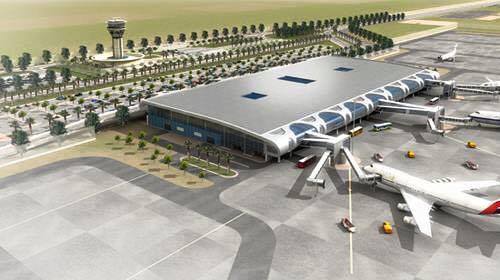Abidjan International Airport, one of the most efficient in the West African region, is positioned as an air transport hub and an attractive international reference at the cutting edge of technology.
The Ivorian Prime Minister, Patrick Achi, launched on Monday, December 19, 2022 the extension and rehabilitation of the Felix Houphouet-Boigny Airport in Abidjan, in the presence of the French Minister of Economy, Finance and Industrial and Digital Sovereignty, Bruno Le Maire.
Abidjan airport is experiencing continuous growth in traffic. With nearly 2.3 million passengers in 2019, the last year of reference before 2022, the country wants to reach 5 million passengers through this expansion phase and aims for 8 million after another program.
Mr. Bruno Le Maire said he was “happy and proud to lay the foundation stone for the rehabilitation and expansion of Abidjan International Airport,” adding that “this is a strategic project that will eventually double” the volume of passengers per year.
“It is a major project in terms of infrastructure, it is also an economic and political project, because this project will place Cote d’Ivoire as the main international hub in West Africa,” he added.
“This new program that we are launching today, with an estimated cost of 330 billion CFA francs, will increase the capacity of the airport of Abidjan,” Ivorian Transport Minister, Amadou Kone said.
According to Mr. Kone, it should increase the volume of traffic at the Felix Houphouet-Boigny International Airport in Abidjan from “two million passengers per year to date, to more than five million passengers per year, after completion of work in 2026.”
Through this project to expand the Abidjan airport, the Ivorian government aims to maintain the gains made in preserving the environment and strengthening air safety and security, with the key to controlling electricity consumption.
It includes the urgent construction of two lagoon terminals, a kind of advanced terminal, one in Cocody in the east of Abidjan and the second in Port-Bouet to decongest the Boulevard VGE and the main airport terminal, giving travelers from Abidjan North the opportunity to complete travel formalities in Cocody and cross the lagoon by boat to board, he said.
“We will continue to grow the national airline Air Cote d’Ivoire which has just concluded a contract with Airbus Industry for the acquisition of large aircraft to launch long-haul flights to Europe and America,” Mr. Amadou Kone explained.
In the months ahead, Cote d’Ivoire will inaugurate the airports of San-Pedro (South-West) and Korhogo (North), where work is more than 80 percent complete, and will launch the rehabilitation of Yamoussoukro airport as well as work to bring Bouake airport, the metropolis of central Cote d’Ivoire, into compliance with ICAO standards, which will be the country’s second international airport.
Abidjan Airport was certified ACA 3+ in June 2017 by the Airport Council International for four years. This certification, which aims to make the airport carbon neutral, has been renewed until October 15, 2024. Abidjan Airport remains the only African airport to have this ACA 3+ certification.
The government has engaged successive managers of Abidjan airport since it was built by the Bouygues group and inaugurated in 1951. For this project, it chose the Bouygues group, whose boss Martin Bouygues attended the launch ceremony.
AP/fss/abj/APA


